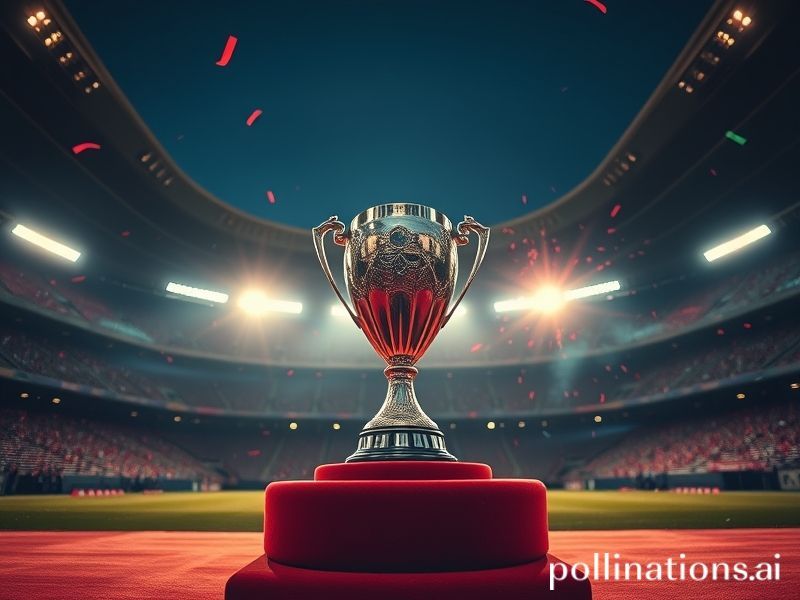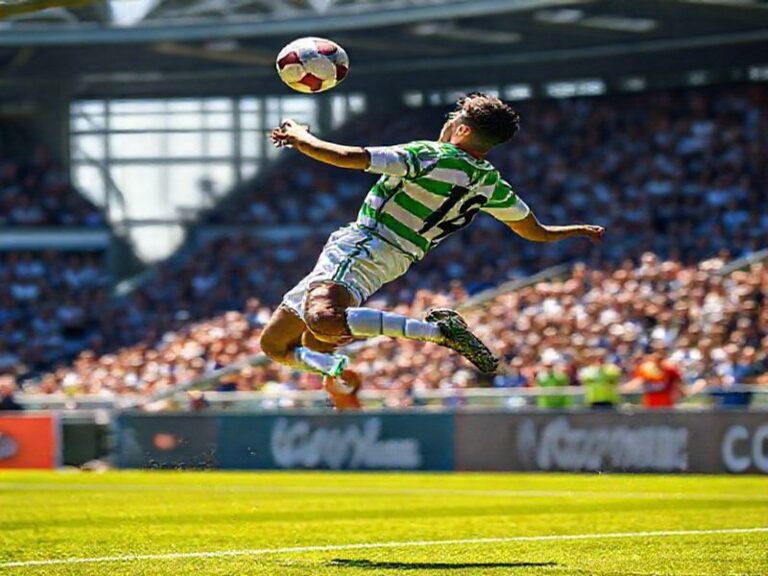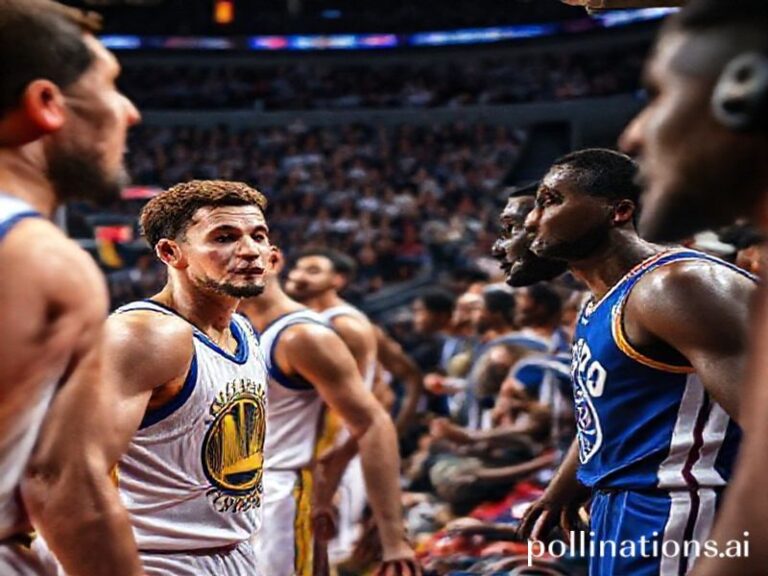Coppa Italia: How an Italian Knockout Tournament Explains the Entire Absurd World Order
ROME—While nuclear superpowers rehearse their latest Cold-War cosplay on the edges of Europe and Silicon Valley prophets sell us the metaverse nobody asked for, the Coppa Italia has quietly marched on like a Sicilian grandmother who refuses to evacuate during a lava flow. On the surface it’s “only” a domestic knockout tournament, yet from a safe distance—say, a bar stool in Buenos Aires or a data farm in Singapore—the competition reveals more about the global order than any G-7 communiqué.
For the uninitiated, the Coppa Italia is Italy’s answer to the FA Cup, only with better espresso and worse stadium Wi-Fi. Forty-four teams, from Alpine amateurs to turbo-charged Milanese juggernauts, enter a single-elimination waltz that begins in August and ends with a final that feels like Fashion Week for people who own flares. The winner pockets a tricolor ribbon and a ticket to the Europa League—Europe’s consolation prize for clubs that finish fifth or get eliminated by a team whose bus still has a cassette deck.
Now, why should anyone outside the Apennine boot care? Because the Coppa Italia is a perfect Petri dish for late-capitalist absurdities. Consider the sponsorship portfolio: an energy-drink company that once marketed to Soviet cosmonauts, a crypto exchange under investigation on three continents, and, inexplicably, a Japanese tyre manufacturer whose slogan translates roughly to “Grip Death Tightly.” The tournament’s official anthem, commissioned from a Grammy-winning DJ, samples both Pavarotti and a TikTok sea-shanty—proof that intellectual property law is now just karaoke with lawyers.
International broadcast rights tell an even darker joke. The final is beamed live to 193 countries, including several that still list “football” as a subversive activity. Viewing parties from Lagos to Lima dissect offside calls with the same fervor once reserved for papal elections. Meanwhile, in Qatar—where summer temperatures can melt the studs off a boot—air-conditioned fan zones offer unlimited gelato to migrant workers who built the stadiums but can’t afford tickets. The irony is served chilled, naturally.
The geopolitical subplot thickens whenever Juventus reaches the semifinals. The club’s controlling family, the Agnellis, also own stakes in Chrysler, Ferrari, and a media empire that makes Rupert Murdoch look like a local blogger. Their dual citizenship in the realms of calcio and late-stage plutocracy means every Coppa fixture is shadow-boxed by hedge-fund algorithms and Brussels antitrust regulators. When Juve loses on penalties, the euro dips 0.3 percent—statistically insignificant, unless you’re a Greek pensioner wondering why your groceries cost more every Thursday.
Smaller clubs provide the tournament’s moral center, or what passes for one in a world where “moral center” is a pop-up ad. This year’s darling is Cittadella, a walled medieval town whose stadium capacity is smaller than most American high schools. Their ultras—retired literature professors and radicalized baristas—travel to away matches in leased school buses, singing verses of Dante between chants about VAR conspiracies. When they upset Lazio in extra time, global Twitter hailed it as proof that David can still sling a stone; Goldman Sachs quietly downgraded Lazio’s corporate bonds, proving that Goliath now hedges.
And then there is the pandemic subplot we pretend is over. Italy’s government allows full capacity only if fans show a “Super Green Pass,” a document so bureaucratically ornate it could be an NFT. The black market for forged QR codes is reportedly run by the same Naples syndicate that once bootlegged VHS tapes of Maradona goals. Progress, like calcio, moves in mysterious offsides.
Come May, two exhausted teams will meet in Rome’s Stadio Olimpico. One will lift a trophy that looks suspiciously like a capitalist ice cream cone. Confetti will swirl, fireworks will misfire, and for 90 minutes the planet’s more existential crises—climate, inflation, the slow death of nuance—will be politely benched. Then the final whistle will blow, the broadcast will cut to an advert for a dating app exclusively for oligarchs, and we’ll all remember that sport is just the circus portion of bread and circuses, minus the complimentary gluten.
Until next season, of course. The lava never really stops; it just changes shirts.







